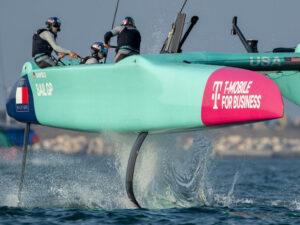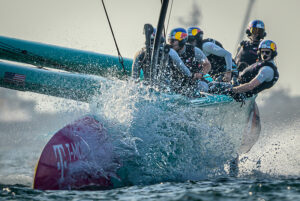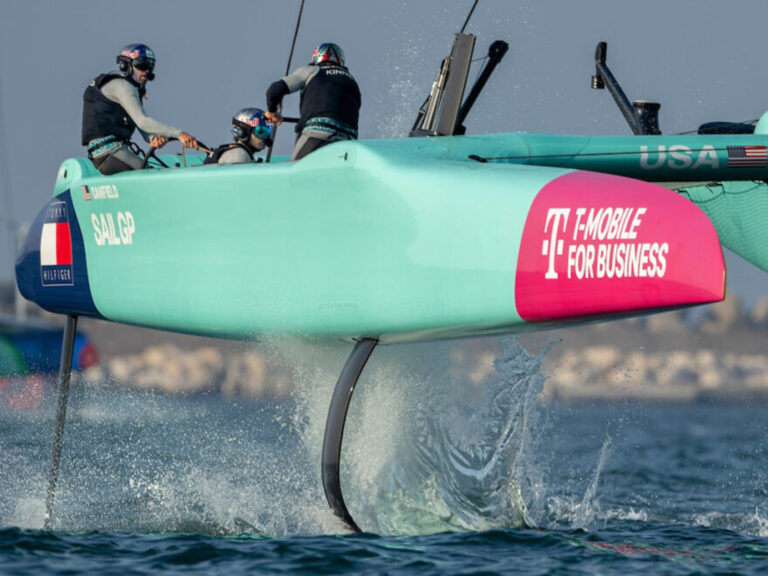
dave reed headshot
The beauty of a season-long weeknight series is if you really tank a race on one particular night, you have seven days to review and analyze how not to repeat the same mistakes. Ideally, you return to the racecourse with a fresh perspective. Most of us can do this without too much difficulty; what’s far more challenging is applying this fresh-start philosophy to a race as it’s happening. When things start to go haywire on the racecourse we often get preoccupied with rehashing one contributing mistake. We start thinking, “How did that boat get past me?” when we should be thinking, “How do I get past that boat?”
What we need to do more often says Olympic Laser sailor Andrew Campbell (p. 60) is “press the reset button” and immediately get our heads back in the race. It’s a concept borne from a video-game generation. Simply press that reset button and start over: you get new lives, new energy, zero points. It’s a new game.
The value of the reset button in sailboat racing is all too often ignored, and Campbell says we should apply this concept not just after a poor finish in a series, but at any time during a race. When things are going bad, close your eyes for a second, think to yourself, “reset,” take a fresh look around at the options ahead, and focus on the one boat ahead you know you can beat. Resetting your priorities and getting past that boat can make all the difference at the end of a regatta, and especially at the end of an extended series.
Here’s a case in point: We recently wrapped up our J/24 summer season with a doozy of a race in which Z and penalty flags were aflutter. It was a messy affair where we were fouled at the start, pushed backward out of a rail-to-rail pile up, and forced to claw our way back from being the last boat to start. Instead of accepting our fate, we hit the internal reset button with the declaration, “There’s lots of racecourse left.” We focused on picking off one boat and then the next, and we sailed that 30-minute race as if our season depended on it.
We managed a 10th and we weren’t too happy with the sour close to our season, but a few days later our tactician delivered good news. In the final overall season results, he reported to the team by e-mail, there were four teams clustered between 8.61 and 8.70 in average points, places 10th to 13th. After 27 total races and four discards, we were 11th overall, .04 points outside the door of that exclusive top-10 club. Further still, we were only .03 points in front of one rival and .05 points in front of another.
But here was the kicker. The two boats behind us earned Z-flag penalties on the fateful final evening, and there was one pivotal protest outstanding. If one boat dropped out of the final race, we would move up a spot, from 10th to ninth, which would move us into a tie for 10th in the overall standings. By his math, we would end up 10th overall thanks to the tiebreaker. We’d put up a pair of second-place finishes, and our rival’s best was a third.
All of this boiled down to one important lesson. “When we think about the value of a single place, we’ll know just how valuable one point can be,” our astute tactician pointed out. “It’s not just the good results that matter. Keeping focused in a bad race, beating one or two boats is all it takes. Think of the boat we nipped at the line in that final race. That was the difference between top 10 and just missed.”
This much I’ll carry over to next year and into my upcoming frostbite season: every point does indeed count, and for those moments where there’s a point or two within my grasp, I’ll have my finger on the button.
-Dave Reed









